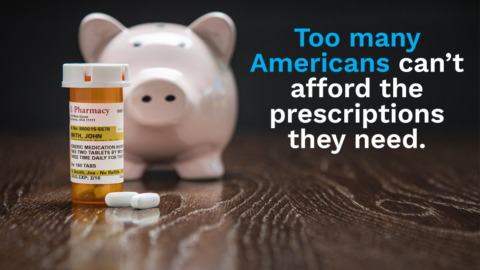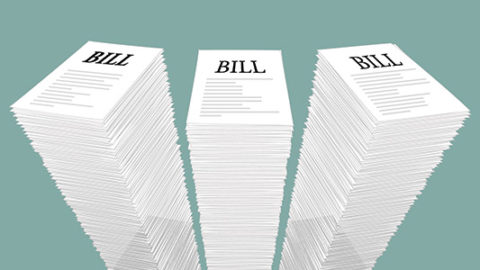Seeing Through Pharma’s “Free Market” Façade
AUTHORS
 Shawn Gremminger
Shawn Gremminger
Director, Health Policy

Director, Health Policy

TOPLINES
Throughout this year’s drug pricing debate – and for many years before – the brand-name pharmaceutical industry has resisted public policy efforts to reduce their sky-high prices by arguing any intervention is a violation of the free market.
It is a seductive argument, because it successfully puts drug manufacturers on the “right” side of a core value for most people in our country. A 2015 poll by the libertarian magazine Reason found that nearly seven-in-ten Americans say they have a net favorable view of a free-market economy. Less than one-third report having a favorable view of a “government managed economy.”
PBGH represents nearly forty of the largest employers and health purchaser organizations in the country, including many Fortune 500 companies. It should come as no surprise, then, that we tend to agree with the American public. We support free markets and, whenever possible, try to find free-market solutions to health care problems.
Here’s the problem with the drug industry’s top talking point: It’s a lie. The fact is, the pricing system that the drug industry is trying to defend isn’t a free market. Heck, it isn’t even a market. It is, in fact, a government-sponsored monopoly.
Government policy has deliberately sanctioned prescription drug monopolies, which have then been exploited by drug manufacturers to charge outrageously high prices. For brand-name drugs, a drug company’s monopoly is granted by the government for a specified period through patents by the Patent and Trademark Office and market exclusivity through the Food and Drug Administration. Granting drugmakers a time-limited monopoly represents a conscious trade-off by policy makers. In effect, the government seeks to give drug makers a financial reward for innovation while protecting consumers in the long run by allowing generic competition after the expiration of the patent and market exclusivity.
Unfortunately, this delicate balance has been badly abused by the drug industry. This is where the drug industry’s “free market” façade becomes a cruel joke. Instead of allowing the free market to come into play when their drugs’ patents and market-exclusivity periods expire, drug companies instead devote enormous energy to maintaining their monopolies through any number of anti-competitive schemes, including “patent thickets” (holding dozens of patents on a single product, thereby deterring competition), “patent evergreening” (making minor changes to formulations, delivery mechanisms, etc. to stave off competition), “product hopping” (forcing patients to switch to “new” formulations of older products with new patents before a generic manufacturer can introduce a competitor to the older product), and “pay for delay” schemes (brand name drug makers paying generic manufacturers not to introduce a competing product).
One would think that an industry that claims to support free-market competition would agree to stop these objectively anti-competitive practices. Instead, the drug industry has time and again worked to stop policies that would enable a free market to thrive.
This year, Congress is considering major legislation to allow Medicare to negotiate the price of drugs that face no competition (i.e., those with a government-sponsored monopoly) and limit price growth on those drugs on behalf of all Americans.
That last clause is critical to PBGH and our members. As we said above, we prefer market-based solutions to health care problems and have long supported bills that would stop patent abuses and lead to more competition for prescription drugs. But if Congress is going to enact policies to directly bring down the price of drugs with no competition, it is absolutely vital that everyone, including the roughly 180 million people who have health coverage in the private market, gain access to those lower prices. If government price negotiation is limited to just Medicare, we believe the bill will actually harm our member companies, their employees and their families, as drug companies will seek to make up for lost revenue to Medicare by raising prices on the rest of us.
It is no small irony that the drug industry is using talk of “free markets” to defend government-sponsored monopolies. We will continue to support the pro-market bills that stop drug company gaming of the patent system. And we hope that if the current drug bill is enacted, by taking away pharmaceutical manufacturers’ ability to engage in monopolistic pricing, the net result will be the thing that we all (claim to) believe in – a free market with more competition and lower prices for everyone.



